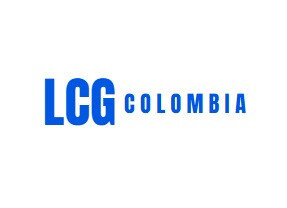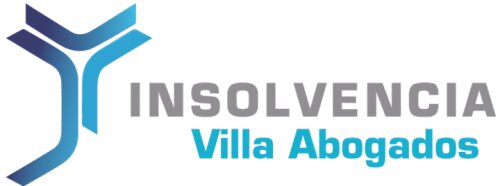Best Conveyancing Lawyers in Bogota
Share your needs with us, get contacted by law firms.
Free. Takes 2 min.
Free Guide to Hiring a Real Estate Lawyer
List of the best lawyers in Bogota, Colombia
About Conveyancing Law in Bogota, Colombia
Conveyancing in Bogota, Colombia refers to the legal process of transferring property ownership from one party to another. This process encompasses a range of activities, including verifying property rights, preparing legal documents, ensuring payment of taxes and other obligations, and registering the change of ownership at the appropriate public registry. Conveyancing is governed by Colombian civil law, specifically provisions within the Colombian Civil Code and related statutes. The conveyancing process aims to provide legal certainty for both buyers and sellers while protecting third-party interests.
Why You May Need a Lawyer
You may require a lawyer experienced in conveyancing in Bogota for several key reasons. The process involves intricate legal steps that, if mishandled, can lead to disputes or financial loss. Common scenarios where legal help is essential include:
- Purchasing or selling residential, commercial, or rural property
- Resolving disputes about property boundaries or ownership rights
- Managing inherited property or real estate as part of an estate
- Assisting with the registration of a new construction or development
- Verifying the absence of liens or encumbrances on a property
- Preparing official contracts of sale (escritura pública de compraventa)
- Ensuring compliance with local tax and regulatory obligations
Legal advice provides peace of mind by reducing mistakes, delays, or future legal issues.
Local Laws Overview
Bogota operates under Colombian law, which has specific provisions regarding the conveyance of real estate. A few key aspects include:
- Property Registration: All property transactions must be formalized via a public deed and registered at the Oficina de Registro de Instrumentos Públicos.
- Due Diligence: Buyers must verify the property's current legal status, including ownership, outstanding debts, or liens by obtaining a Certificado de Tradición y Libertad.
- Contractual Requirements: The contract of sale must be drafted as a public deed (escritura pública) before a notary and signed by both parties.
- Tax Obligations: Property transfer taxes (impuesto de registro e impuesto de beneficencia) and other municipal fees must be settled prior to final registration.
- Foreign Ownership: Foreigners may acquire property in Colombia with some additional regulatory steps, most importantly proper registration of foreign currency with the Colombian Central Bank.
- Legal Representation: Parties may grant a power of attorney for representation if they cannot be physically present during the process.
An understanding of these aspects is critical to ensuring a valid and binding transfer of property rights.
Frequently Asked Questions
What is the first step when buying or selling property in Bogota?
The first step is negotiating the terms between buyer and seller, usually followed by drafting a promise of sale contract (promesa de compraventa). This outlines the main terms and allows due diligence before proceeding to the public deed.
Do I need a notary for conveyancing in Bogota?
Yes, the transfer of real estate in Colombia must be formalized through a public notary. The notary drafts and legalizes the public deed required for registration.
How do I verify property ownership and history?
You should obtain a Certificado de Tradición y Libertad from the Oficina de Registro de Instrumentos Públicos. This document provides the legal status, ownership history, and shows any liens or encumbrances.
What taxes and fees should I expect to pay?
Standard costs include notary fees, registration tax, local beneficence tax, and, in some cases, income tax or VAT. These may vary based on property value and local authority.
Can foreigners buy property in Bogota?
Yes, foreigners can purchase property in Colombia. They must comply with specific regulations, especially regarding the provenance of investment funds and proper registration for the transfer of funds.
What if there are debts associated with the property?
Outstanding debts or liens must be resolved before the property can be legally transferred. Your lawyer will check for any issues during due diligence and address them before signing the public deed.
How long does the conveyancing process take?
The process may take from two to eight weeks, depending on the complexity of the transaction, the speed of due diligence, and the availability of documents and signatures.
Is a lawyer mandatory for conveyancing?
While not strictly required by law, hiring a lawyer is highly recommended to ensure proper legal protection, compliance, and to avoid costly errors, especially for foreigners or complex transactions.
What documents are needed to complete the transaction?
Essential documents include identification for involved parties, Certificado de Tradición y Libertad, the previous property deed, proof of tax payments, and the drafted public deed for registration.
What happens after the deed is signed?
After signing the public deed before a notary, the deed must be registered at the Oficina de Registro de Instrumentos Públicos. Once registered, the buyer is officially recognized as the new owner.
Additional Resources
For more information and official guidance, you may consult the following organizations:
- Oficina de Registro de Instrumentos Públicos de Bogotá - For property registration and certificates
- Superintendencia de Notariado y Registro - Regulatory authority overseeing notaries and registries nationwide
- Notarías de Bogotá - Accredited local notaries for signing and processing public deeds
- Ministerio de Justicia y del Derecho - Provides legal standards and guidance for conveyancing procedures
- Asociación Colombiana de Lonjas de Propiedad Raíz - Real estate association offering professional support and resources
Next Steps
If you are considering a property transaction in Bogota, it is advisable to consult with a qualified lawyer experienced in Colombian conveyancing law. Gather all relevant property documents and clarify the terms with the other party. Your lawyer will assist you with due diligence, contract drafting, negotiation, tax compliance, and the formalization of the deed. Do not hesitate to ask questions and seek clarity at each stage. Engaging professionals early ensures a smooth, secure, and legally sound property transfer.
Lawzana helps you find the best lawyers and law firms in Bogota through a curated and pre-screened list of qualified legal professionals. Our platform offers rankings and detailed profiles of attorneys and law firms, allowing you to compare based on practice areas, including Conveyancing, experience, and client feedback.
Each profile includes a description of the firm's areas of practice, client reviews, team members and partners, year of establishment, spoken languages, office locations, contact information, social media presence, and any published articles or resources. Most firms on our platform speak English and are experienced in both local and international legal matters.
Get a quote from top-rated law firms in Bogota, Colombia — quickly, securely, and without unnecessary hassle.
Disclaimer:
The information provided on this page is for general informational purposes only and does not constitute legal advice. While we strive to ensure the accuracy and relevance of the content, legal information may change over time, and interpretations of the law can vary. You should always consult with a qualified legal professional for advice specific to your situation.
We disclaim all liability for actions taken or not taken based on the content of this page. If you believe any information is incorrect or outdated, please contact us, and we will review and update it where appropriate.















